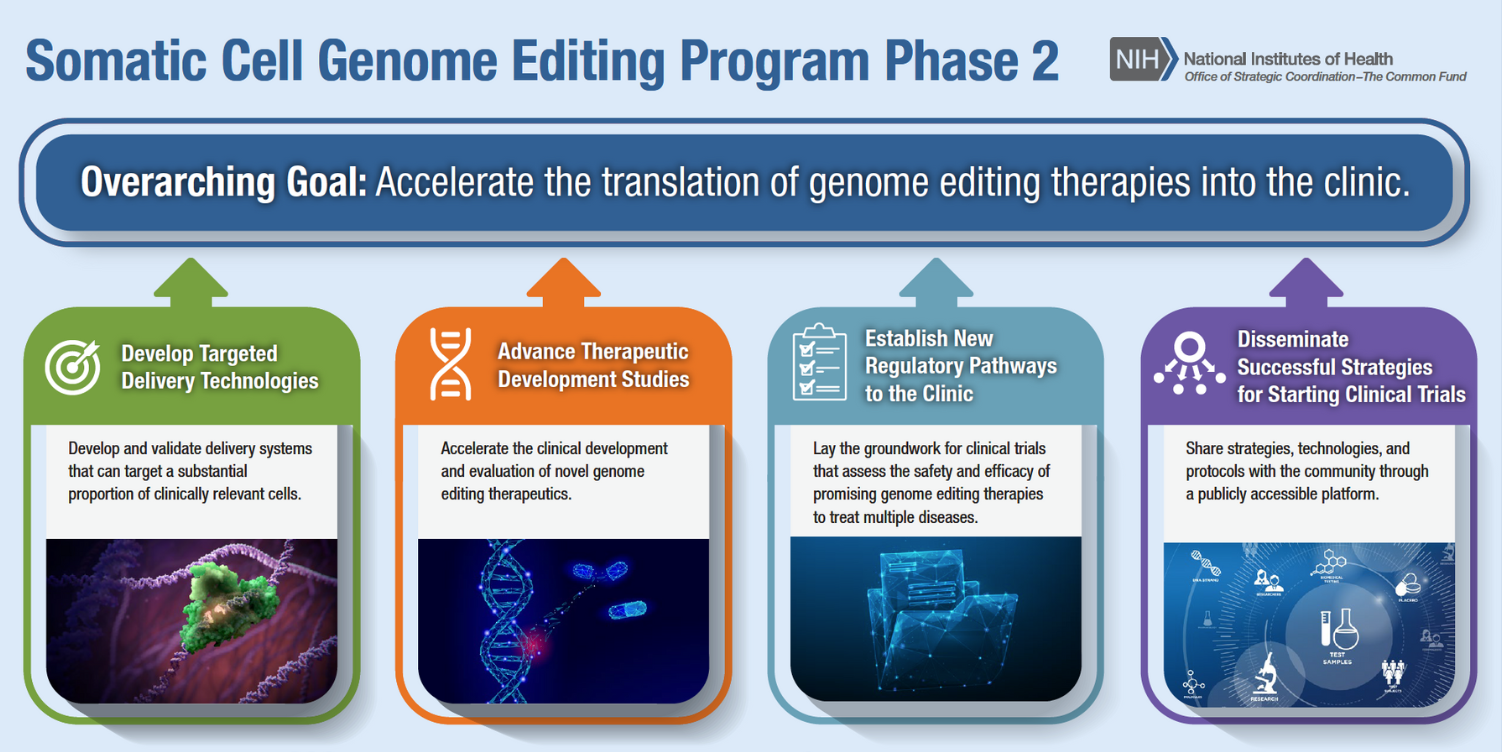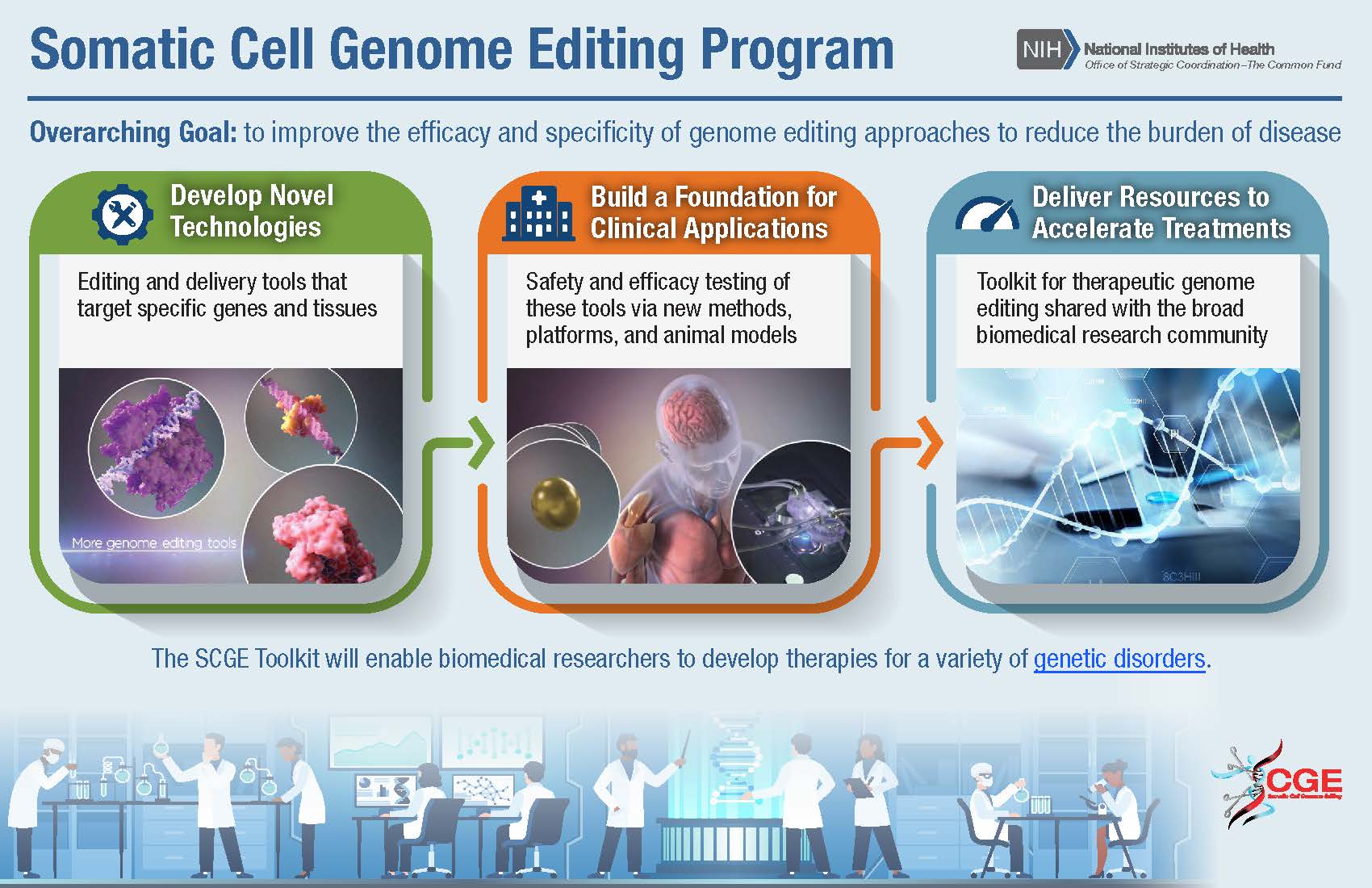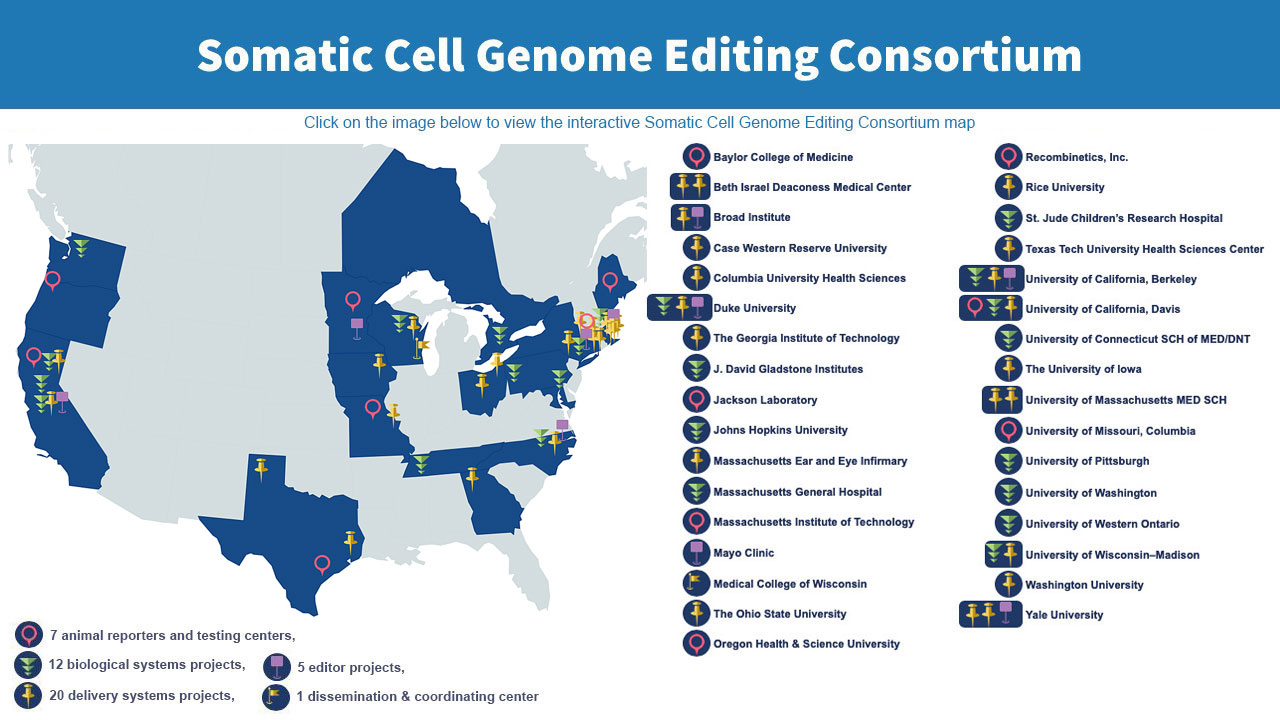SCGE Phase 2
The Somatic Cell Genome Editing (SCGE) Consortium is an NIH Common Fund program that aims to develop safe and effective methods to perform gene editing to treat genetic diseases in somatic cells. For Phase 2, the goal of the SCGE program is to accelerate the development of genome editing therapies into clinic. There are four initiatives to help achieve this goal:
- Technologies and Assays: This research will work on developing targeted delivery technologies and assays for safety and efficacy studies.
- IND-Enabling Studies: These projects will work on advancing clinical development and evaluation of novel genome editing therapeutics to support advancement towards clinical trials.
- Platform Clinical Trials: This research will work on establishing new regulatory pathways to lay the groundwork for clinical trials that assess the safety and efficacy of promising genome editing therapies to treat multiple diseases.
- Translational Coordination and Dissemination Center (TCDC): This group will work on disseminating successful strategies for starting clinical trials through a publicly accessible platform.

SCGE Phase 1
In Phase 1, the SGCE worked to improve the efficacy and specificity of genome editing approaches. The SCGE program developed new methods and improved systems that delivered genome editing machinery into various tissues with greater specificity, including tissues that present an unmet need and that are harder to reach such as the brain, ear, heart, and lung. SCGE made significant discoveries of new or optimized editors that edit target genomes with improved efficacy and novel functionality, including a prime editor that could correct up to 89% of known genetic variants associated with human diseases. The SCGE program developed new methods to assess unintended biological effects, such as high-throughput technologies that quickly identify high specific target sites and follow genome-wide activity of editors over time. Through the development of better animal models, the SCGE program has tested and validated a number of genome editing tools and delivery systems. The program has developed a genome editing toolkit that broadly disseminates program tools and learnings, opening this space to a wider range of the biomedical research community.
The SCGE Consortium is supported by the NIH Common Fund through cooperative agreements administered by the National Center for Advancing Translational Sciences, NIH Office of the Director, National Heart, Lung, and Blood Institute, National Institute of Arthritis and Musculoskeletal and Skin Diseases, National Institute of Neurological Disorders and Stroke, National Institute of Allergy and Infectious Diseases, National Human Genome Research Institute, and National Institute of Biomedical Imaging and Bioengineering. The consortium is managed by a trans-NIH working group representing multiple NIH Institutes and Centers. For more information about the SCGE NIH Working Group and the Common Fund, please go here.



